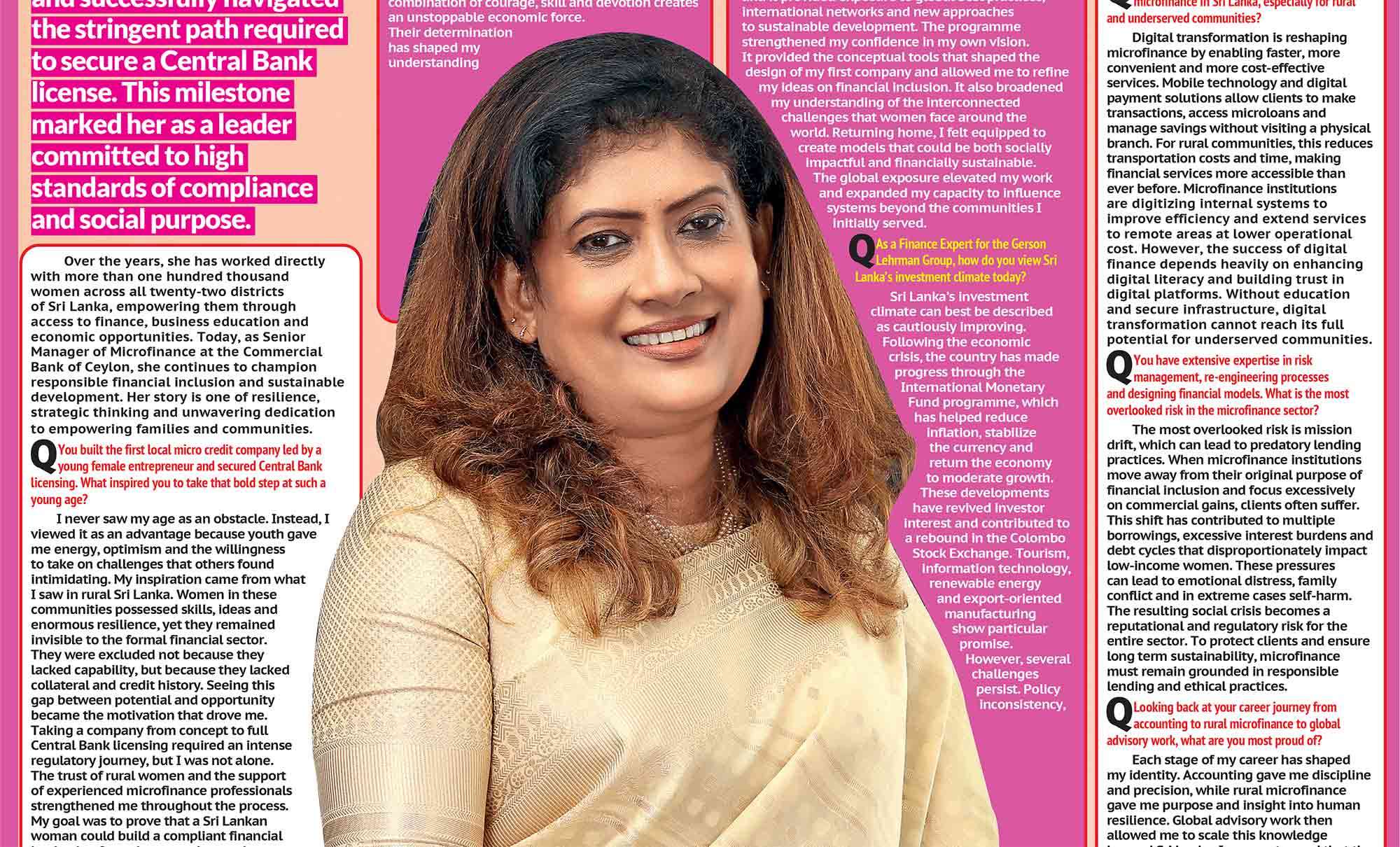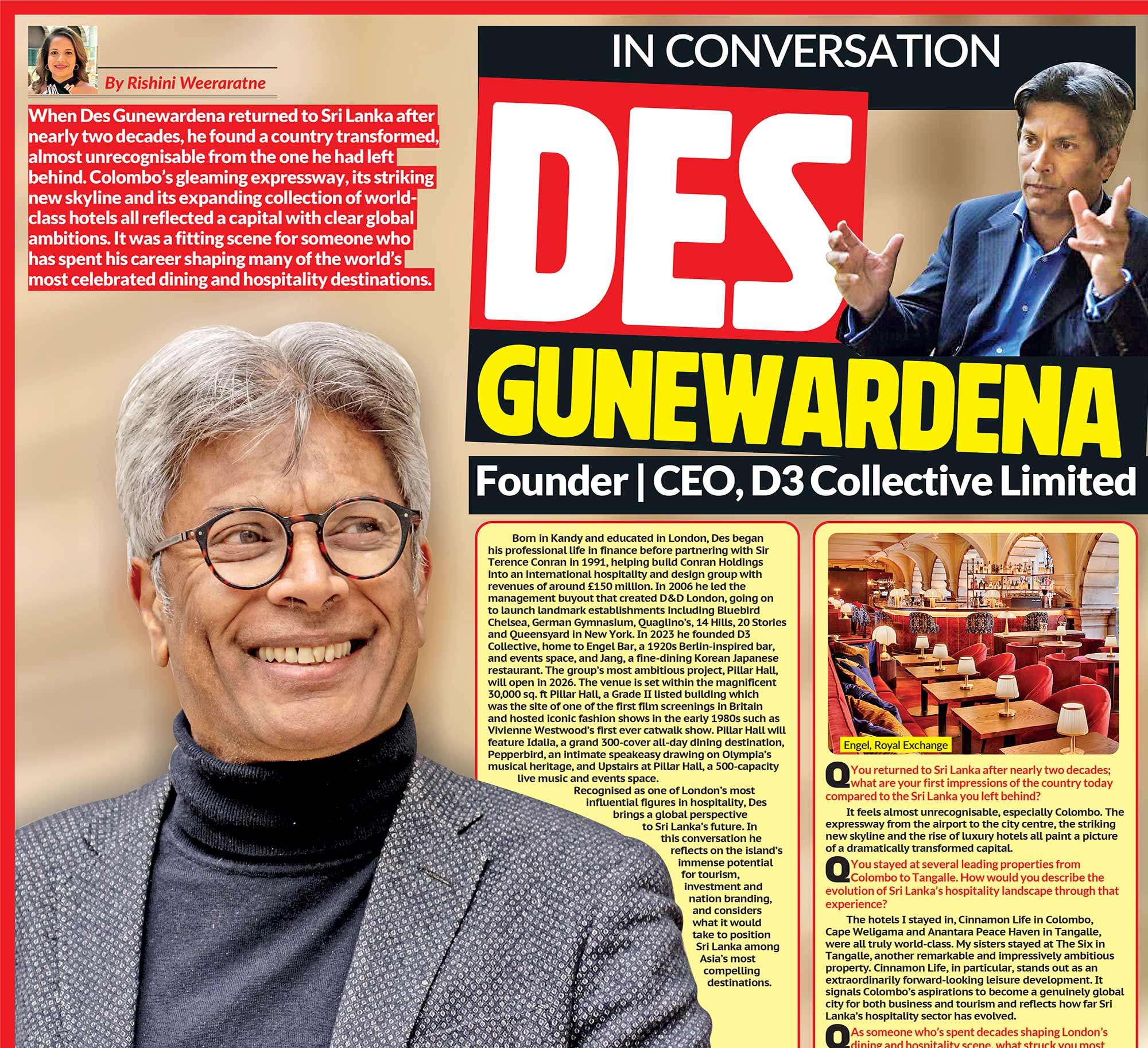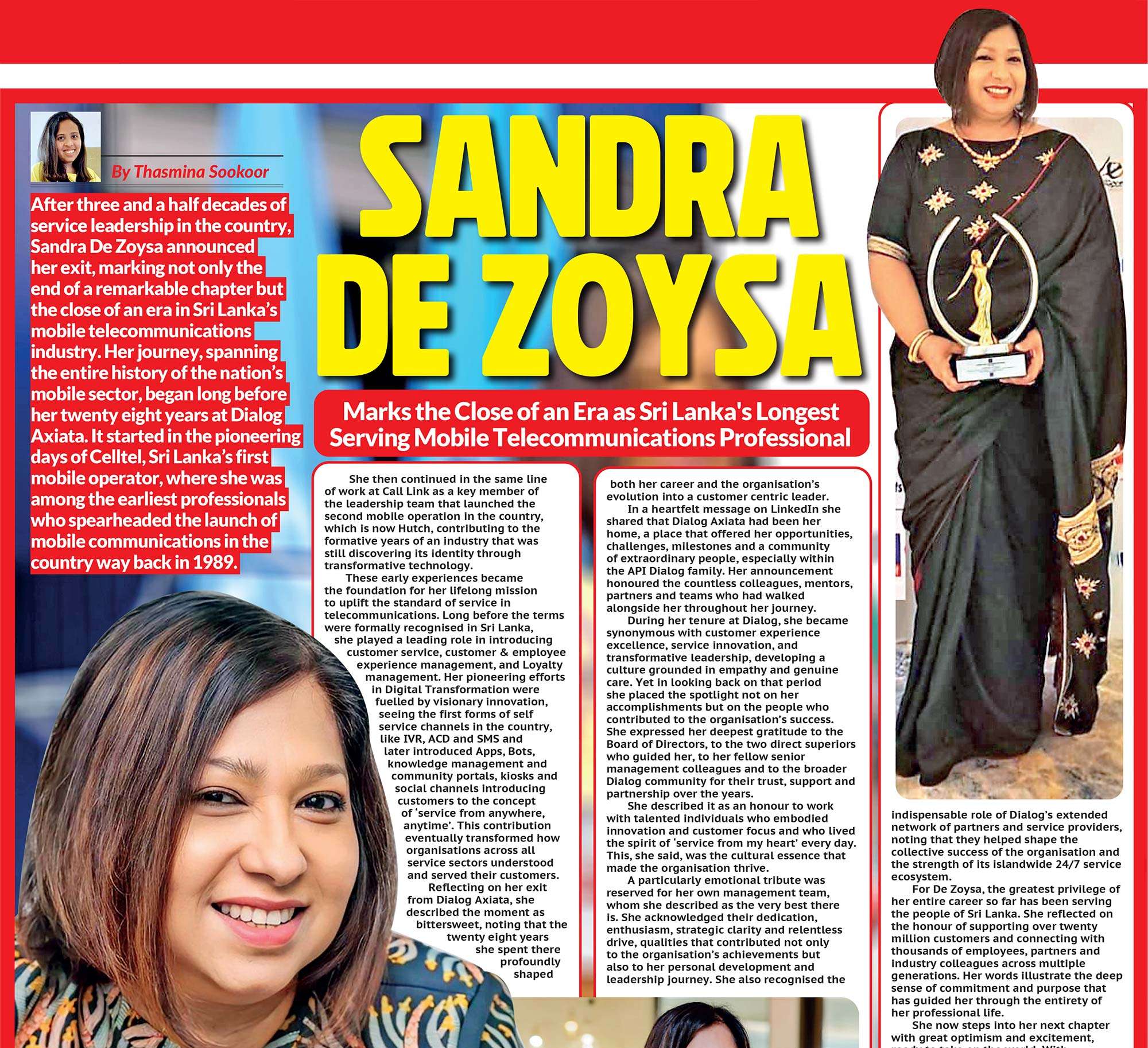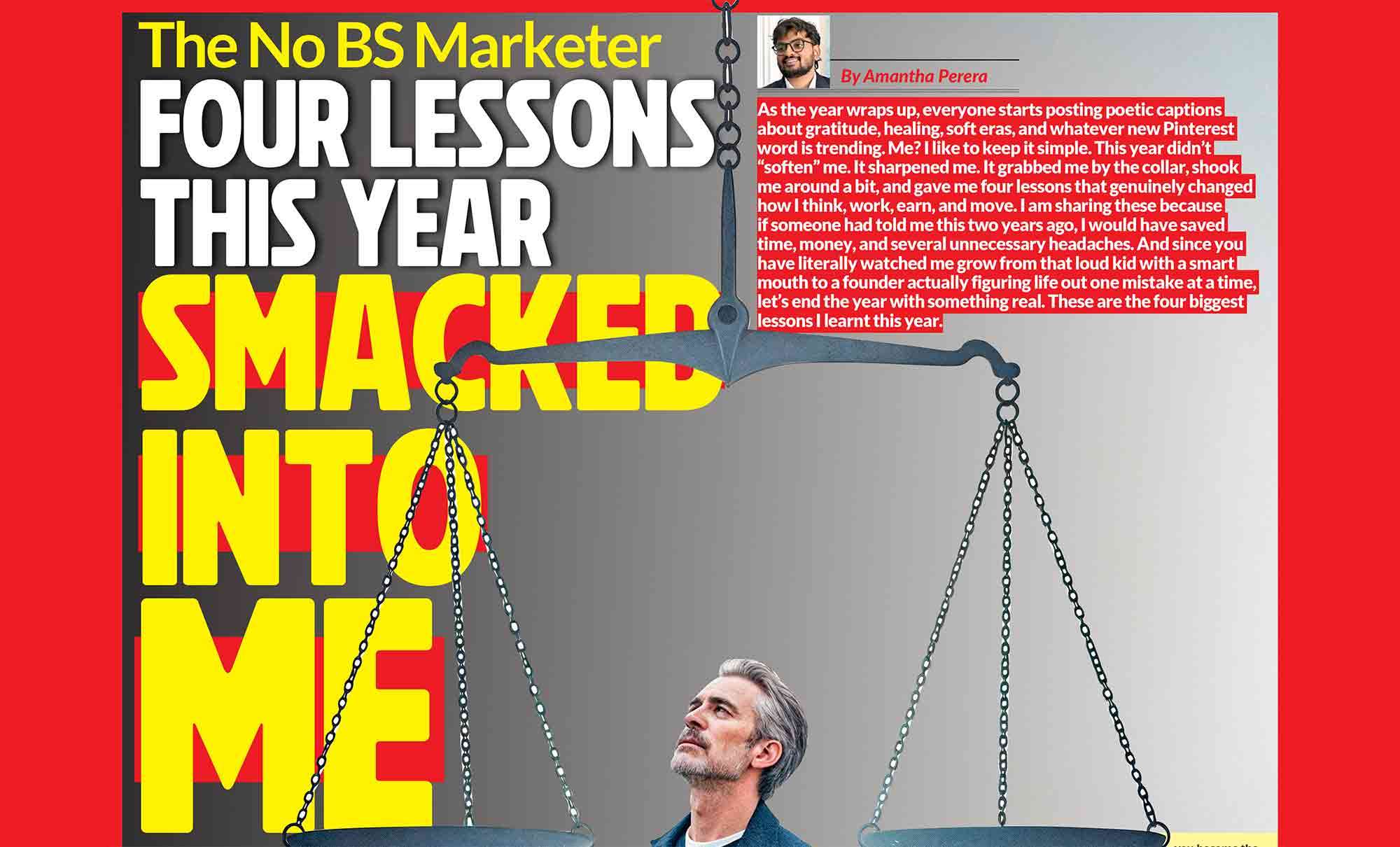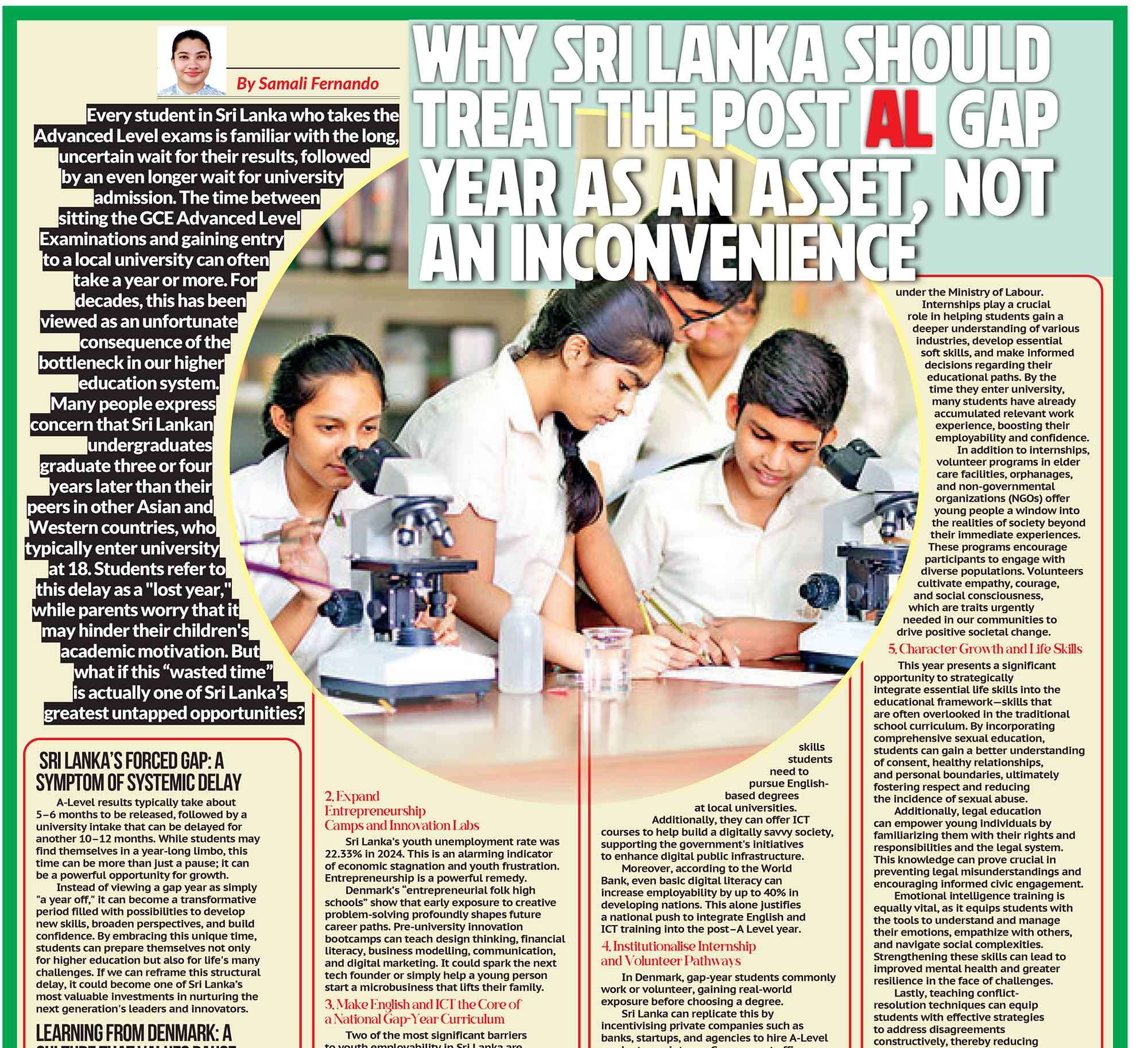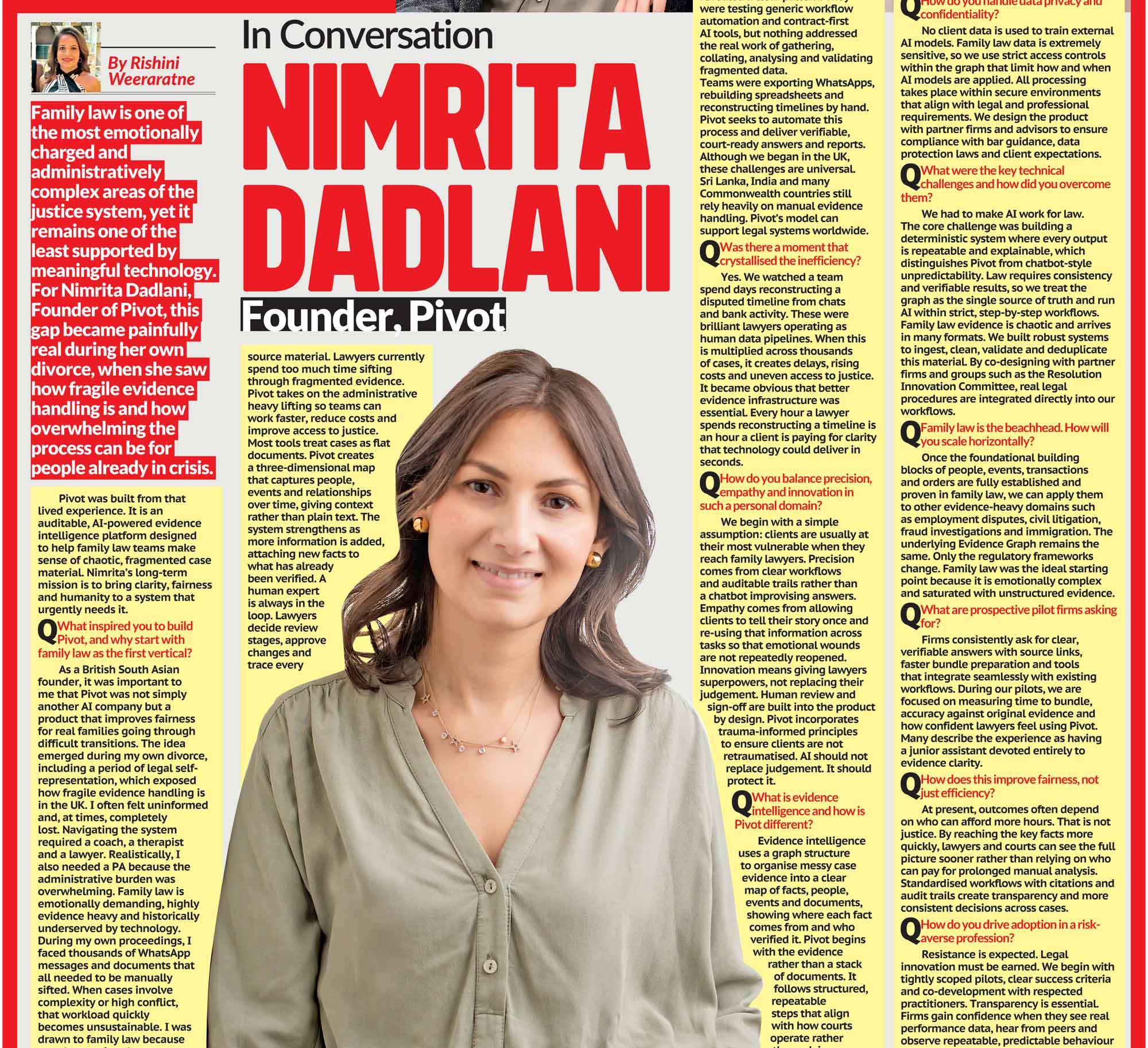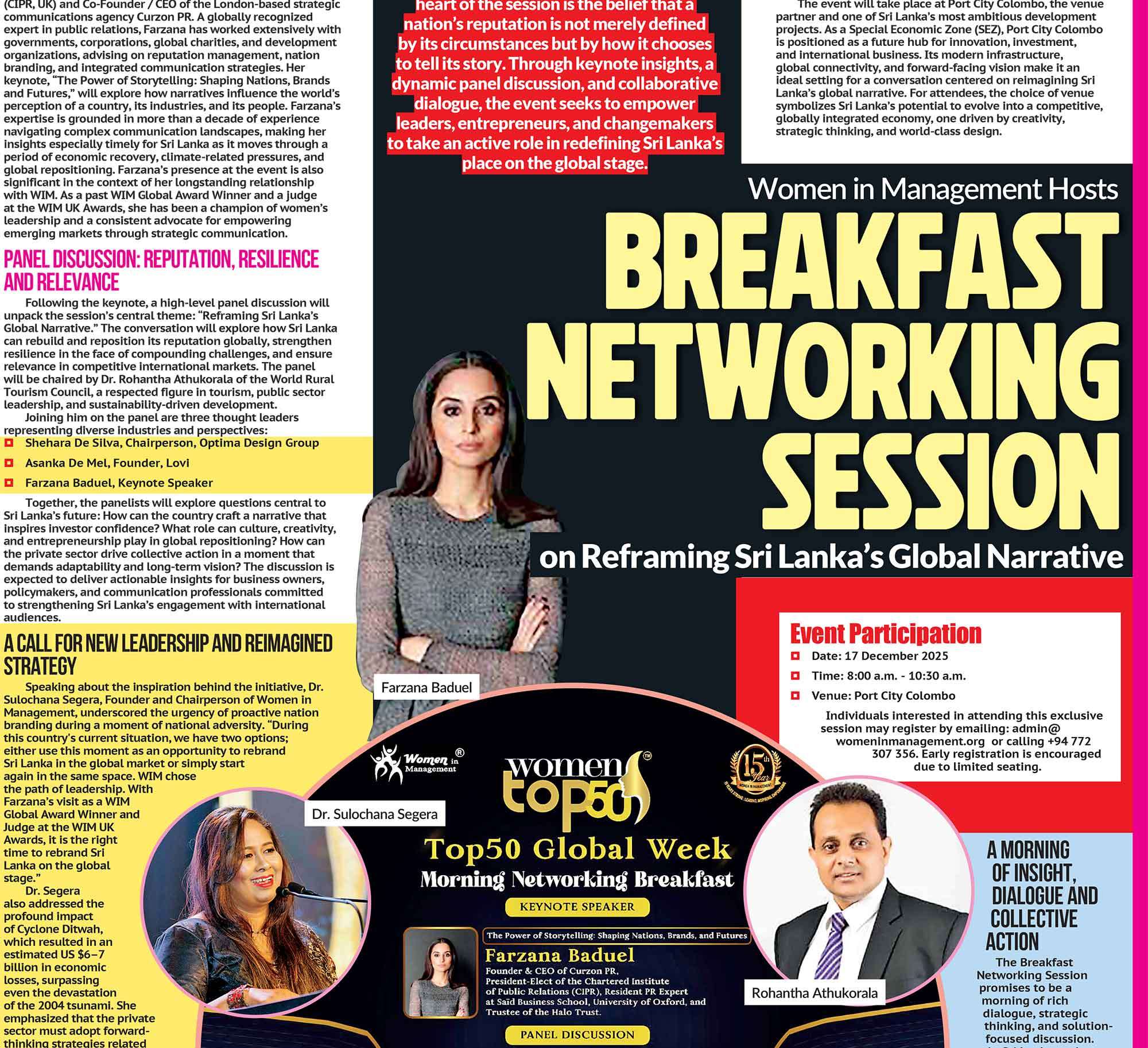
For years I mistook people pleasing for diplomacy. It took time, training and humility to realise that negotiation is not conflict but connection. I have always been a people pleaser. Even as a child, I would go to great lengths to avoid confrontation. At school I was the one smoothing disagreements, eager for everyone to get along. That trait served me well in many ways. It made me empathetic, diplomatic and considerate. But it also came with a quiet cost. I struggled to say no. I found it hard to ask for what I wanted. And I was deeply uncomfortable with the idea of negotiation. My husband, on the other hand, seemed to move through life negotiating with ease.
 I would watch him at restaurants charm his way to a better table, at hotels secure a room upgrade, or in shops ask for and receive a discount with the same calm assurance he brought to business meetings. There was no aggression in his manner, just quiet confidence and clarity about what he wanted. I admired it. I also envied it.
I would watch him at restaurants charm his way to a better table, at hotels secure a room upgrade, or in shops ask for and receive a discount with the same calm assurance he brought to business meetings. There was no aggression in his manner, just quiet confidence and clarity about what he wanted. I admired it. I also envied it.
For much of my career, I found ways to avoid negotiation altogether. As the CEO of a professional services firm, I delegated the task to colleagues who were more comfortable in that space. I hired people with strong negotiation skills, hoping their strength would compensate for my weakness. When negotiation was unavoidable, I hid behind emails. In person, I often gave in too soon, convinced that pushing further would make me seem difficult or ungrateful. I could negotiate fiercely on behalf of my clients and my team, but never for myself. Eventually, I realised that this reluctance was holding me back. As a leader, negotiation is not optional. It is a daily reality. We negotiate with clients, suppliers, partners and employees. We negotiate on budgets, deadlines and expectations. We even negotiate with ourselves when deciding what to prioritise. To avoid negotiation is to avoid growth.
So, I decided to confront my discomfort directly. I enrolled in a course on negotiation at Oxford University’s Saïd Business School, where I have been a resident expert for over six years. One of the privileges of my role there is that I am often able to sit in on other courses. The programme on negotiation, taught by Tim Cullen, was one of the most transformative learning experiences I have had. Tim Cullen is a former World Bank director and the founder of the Oxford Programme on Negotiation. He has advised governments, corporations and international organisations on complex disputes and has an extraordinary ability to distil the psychology of negotiation into clear, practical principles. His approach changed the way I see not only business but also communication itself.
The Art and Science of Negotiation
Cullen describes negotiation as both an art and a science. It is the art of persuasion through understanding rather than coercion, and the science of reaching agreement without unnecessary sacrifice. Too often, people imagine negotiation as haggling, a tug of war where one side wins and the other loses. But Cullen teaches that the best negotiations are those where both sides leave the table feeling heard, respected and satisfied. Successful negotiation begins with self-awareness. You must understand not only your position but also your interests. Positions are the goals you state openly. Interests are the motivations beneath those goals. Two parties may appear to want the same thing but for very different reasons. When you understand those underlying interests, you can find solutions that meet both sets of needs.
He uses a simple but powerful analogy. Positions are the text; interests are the subtext. True influence operates on both levels.
Know What You Want
Cullen encourages negotiators to identify their goals clearly at the outset. Too many people walk into negotiations without a clear sense of what they hope to achieve. They end up reacting to the other side rather than guiding the process. Before entering any negotiation, it is essential to distinguish between needs and wants. Needs are non-negotiable; wants are flexible. Grouping them into short term and long-term goals helps to maintain perspective. With clarity comes confidence, and with confidence comes composure.
Trading on Differences
Another insight that stayed with me is the idea of trading on differences. Negotiation is not always about compromise. Sometimes value is created when two parties see the same issue differently. One side may place a higher value on time, the other on cost. Understanding those differences allows you to design trades that create mutual benefit. Cullen urges negotiators to reject the “fixed pie” mindset, the belief that one side’s gain must be the other’s loss. The most successful negotiators expand the pie by exploring the full range of interests at play.

The Power of Preparation
Preparation is the foundation of any strong negotiation. Research, reflection and planning create the confidence to adapt in real time. Cullen advises mapping out all the stakeholders involved, understanding where influence lies, and anticipating potential allies and obstacles. A central concept in negotiation theory is BATNA, the “best alternative to a negotiated agreement.” Knowing your BATNA gives you power because it defines your fallback option. It prevents you from accepting a poor deal out of fear. You should also consider your counterpart’s BATNA, as it shapes how far they are willing to move. But Cullen cautions against revealing your own BATNA too early. Some cards are best kept close.
At the Table
When the moment of negotiation arrives, certain habits help. Cullen advises making the first offer, when possible, as it sets an anchor point. If the other party moves first, resist the temptation to react too quickly. Propose a counter offer instead. It helps to bring multiple issues to the table rather than addressing them one by one. Grouping them allows for creative trade-offs. You can concede on points that matter less to you in exchange for gains that matter more. This gives both sides psychological wins without undermining substance. Emotions, however, are the silent players in any negotiation. Anger clouds judgment and exposes vulnerability. Threats damage trust. The best negotiators remain calm, focused, and forward looking. They think several moves ahead, like chess players. They understand that today’s negotiation may shape tomorrow’s relationship. Cullen often says that negotiation is not about defeating the other side but about understanding them deeply enough to find a path that serves both. It is a long-term art, not a short-term tactic.
The Psychology of Decision Making
Two key building blocks support negotiation: decision making and persuasion. Understanding how people make decisions, ourselves included, helps us avoid common traps. Daniel Kahneman’s book Thinking, Fast and Slow offers insight into this. Kahneman explains that our minds operate in two modes: fast thinking, which is intuitive and emotional, and slow thinking, which is deliberate and rational. Most of our decisions, even in high stakes situations, are made through fast thinking. Kahneman warns of cognitive biases that can distort judgment: the anchoring trap, the framing trap, the status quo bias, confirmation bias, the sunk cost fallacy, and overconfidence. Recognising these patterns allows negotiators to pause before reacting, to slow down the thinking process, and to make more rational choices.
The Power of Persuasion
Negotiation also requires persuasion. Aristotle, who taught Alexander the Great, defined persuasion through three pillars: ethos, pathos and logos. Ethos is credibility, pathos is emotion, and logos is logic. The balance of all three determines the strength of your argument. Aristotle understood something timeless about human nature. We are not persuaded by reason alone. We are emotional beings who need to feel understood. The best negotiators recognise this. They read the room. They understand the pressures and fears of the people sitting across from them. They use stories, humour and empathy to create common ground. Centuries later, the psychologist Robert Cialdini expanded on Aristotle’s ideas in his book Influence. He identified six universal principles of persuasion: reciprocation, consistency, social proof, liking, authority and scarcity. When used ethically, these principles help negotiators build trust and create conditions for agreement.
A Shift in Mindset
For me, the greatest revelation in learning negotiation was that it is not about winning. It is about understanding. It is not about manipulation. It is about alignment. It is about finding a balance between assertiveness and empathy. After years of avoiding negotiation, I discovered that it could be an act of generosity. When done well, it strengthens relationships, not weakens them. It allows both sides to walk away feeling respected and satisfied. Now, when I enter a negotiation, I remind myself that my goal is not to please everyone but to create value for everyone. That means being honest about my needs, listening carefully to others, and searching for common ground. It means seeing negotiation not as confrontation but as collaboration. The art of negotiation, like the art of life, lies in the balance between confidence and compassion. It begins with knowing your worth and ends with recognising the worth of others. That lesson, I learned at Oxford, but I practise it every day.
-----------------------
About The Writer
Farzana Baduel, President-elect (2026) of the Chartered Institute of Public Relations and CEO and Co-founder of Curzon PR (UK), is a leading specialist in global strategic communications. She advises entrepreneurs at Oxford’s Said Business School, co-founded the Asian Communications Network (UK), and serves on the boards of the British Asian Trust, the Halo Trust, and Soho Theatre. Recognised on the PRWeek Power List and Provoke Media’s Innovator 25, she also co-hosts the podcast, Stories and Strategies. Farzana champions diversity, social mobility, and the power of storytelling to connect worlds.


